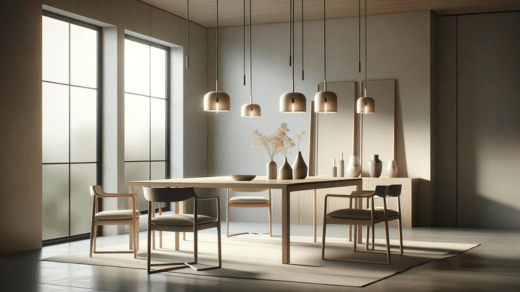
Minimalist pendant lights
This comprehensive guide explores various designs of country-style houses, highlighting their unique characteristics and charm. Beginning with an introduction to the origins and appeal of country houses, it delves into the distinctions between country and farmhouse styles.
Introduction
Country houses have long been cherished for their nostalgic charm and serene ambiance, offering an escape from the hustle and bustle of urban life. These homes, steeped in history and tradition, are designed to evoke a sense of warmth, comfort, and connection to the natural surroundings. Originating primarily in rural areas of Europe and North America, country houses were initially practical structures built to accommodate the needs of farmers and rural dwellers. Over time, they evolved into elegant and sophisticated residences, blending rustic elements with refined architectural details.
The appeal of country house design lies in its versatility and timelessness. These homes are celebrated for their ability to combine traditional aesthetics with modern comforts, creating spaces that are both functional and inviting. The style’s popularity has surged in recent years as more people seek a lifestyle that balances simplicity and elegance, offering a retreat from the frenetic pace of contemporary living. Whether situated in the rolling hills of the English countryside, the sunny landscapes of the American South, or the picturesque villages of France, country houses embody a universal longing for tranquility and a deeper connection to nature.
In this article, we will explore the rich history and defining characteristics of country house design. We will delve into the various types of country house plans, providing detailed insights into their unique features and benefits. Additionally, we will discuss the key considerations for designing the interior of a country house, ensuring that every element contributes to a harmonious and cohesive aesthetic. Finally, we will showcase seven distinct styles of country house design, each offering its own take on this beloved architectural tradition. From the romantic charm of French country houses to the rugged appeal of ranch-style homes, there is a country house design to suit every taste and preference.
Country House vs. Farmhouse: What’s the Difference?
While both country houses and farmhouses evoke a sense of rustic charm and connection to the countryside, they possess distinct characteristics that set them apart. Understanding these differences can help homeowners choose the style that best aligns with their preferences and lifestyle needs.
Historical and Functional Origins
Country houses have a rich history rooted in the European aristocracy and gentry. These homes were often secondary residences for the wealthy, serving as retreats from urban life. They were designed not just for practicality, but also for leisure and social gatherings.
Farmhouses originated as the central buildings on farms, providing practical living spaces for farming families. They were designed to support an agrarian lifestyle and were built with functionality in mind.
Architectural Style and Features
Country houses often feature a mix of architectural styles, reflecting the influences of the regions in which they were built. Common elements include stone or brick exteriors, symmetrical facades, and grand entryways.
Farmhouses are typically simpler and more utilitarian in design. They often have wood or clapboard exteriors, gabled roofs, and large porches. The style is straightforward, with an emphasis on durability and practicality.
Aesthetic and Decorative Elements
The aesthetic of a country house is one of refined rusticity. These homes balance traditional charm with sophisticated details. They often incorporate antique furniture, rich fabrics, and decorative elements that add a touch of elegance.
Farmhouses embody a more casual and cozy aesthetic. The emphasis is on comfort and practicality, with a homey, lived-in feel. The style often includes vintage or repurposed furniture, simple textiles, and a mix of old and new elements.
Modern Interpretations
Today’s country houses continue to embrace their historical roots while incorporating modern conveniences. Contemporary country houses may include smart home technology, energy-efficient systems, and updated kitchens and bathrooms, all while maintaining their classic charm.
The modern farmhouse style has become particularly popular, blending the traditional farmhouse aesthetic with modern design elements. This style often features open floor plans, large windows, and a seamless blend of old and new materials. Modern farmhouses retain their functional roots but incorporate sleek, contemporary finishes.
Modern Country House Designs
French Country House Design
- Core Concept: Blends rustic charm with elegant details, reminiscent of French countryside estates.
- Color Palette: Soft pastels, earthy tones, and muted hues evoke a sense of warmth and tranquility.
- Furniture: Antique pieces with distressed finishes and ornate details contribute to the timeless allure of French country style.
- Lighting: Wrought iron chandeliers and vintage sconces add a touch of romance and sophistication to the space.
Modern Country House Design
- Core Concept: Combines contemporary features with the cozy warmth of country living.
- Color Palette: Neutral colors serve as a backdrop for bold accents, creating a modern yet inviting ambiance.
- Furniture: Sleek lines and mixed materials like wood and metal strike a balance between comfort and sophistication.
- Lighting: Minimalist pendant lights and recessed lighting fixtures offer functional illumination while maintaining a clean and uncluttered aesthetic.
Hill Country House Designs
- Core Concept: Designed to harmonize with hilly landscapes and natural surroundings.
- Color Palette: Natural tones, stone, and wood finishes complement the rugged beauty of hill country terrain.
- Furniture: Sturdy and functional furniture, often custom-made to fit sloped floors and irregular spaces.
- Lighting: Rustic lanterns and ample windows maximize natural light, creating a warm an inviting atmosphere.
English Country House Interior Design
- Core Concept: Cozy and eclectic, filled with character and charm.
- Color Palette: Rich, warm colors and floral patterns create a sense of nostalgia and comfort.
- Furniture: Vintage pieces and plush upholstery invite relaxation and leisure.
- Lighting: Traditional lamps and chandeliers with crystal accents add a touch of elegance and refinement.
Low Country House Designs
- Core Concept: Coastal and airy, designed to withstand hot climates and embrace coastal living.
- Color Palette: Light blues, whites, and sandy tones evoke the serene beauty of coastal landscapes.
- Furniture: Wicker and rattan furniture paired with light woods create a relaxed and casual atmosphere.
- Lighting: Ceiling fans with lights and coastal-themed fixtures enhance airflow and illuminate the space with a coastal flair.
American Country House Design
- Core Concept: Classic and comfortable, reflecting the rich heritage of American architecture and design.
- Color Palette: Red, white, and blue hues, complemented by natural wood accents, pay homage to American patriotism.
- Furniture: A mix of antique and contemporary pieces create a sense of nostalgia and familiarity.
- Lighting: Vintage-style lamps and pendant lights provide warm and inviting illumination, reminiscent of bygone eras.
Ranch Country House Design
- Core Concept: Open and expansive, inspired by the vast landscapes of the American West.
- Color Palette: Earthy colors and natural materials blend seamlessly with the surrounding environment.
- Furniture: Large, comfortable seating arrangements adorned with leather and wood accents exude a rustic charm.
- Lighting: Rustic chandeliers and wall sconces illuminate the space with a warm and welcoming glow, perfect for cozy evenings spent indoors.
Conclusion
Country style house designs offer a wide range of options, each bringing its unique charm and comfort. Whether you prefer the elegance of a French country house or the rugged appeal of a ranch design, these styles provide a perfect blend of tradition and modernity. By understanding the core principles and design elements of each style, you can create a home that not only looks beautiful but also feels like a serene retreat from the hustle and bustle of everyday life.






